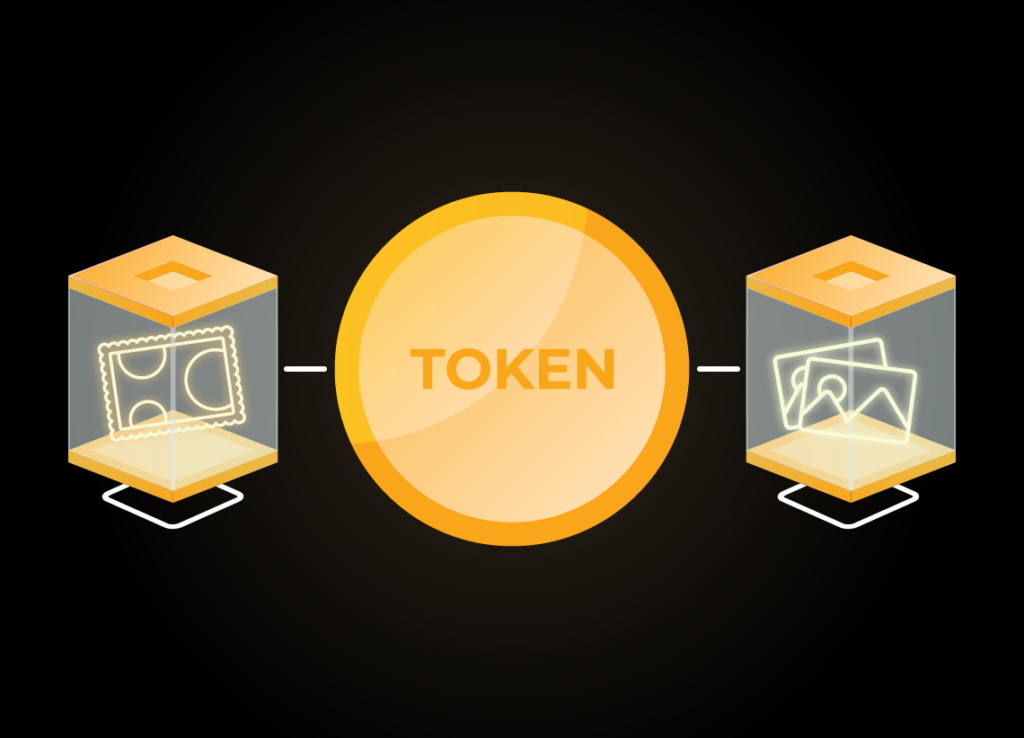
Imagine a world where you can own a piece of a Picasso without needing millions in the bank. Or invest in a thriving vineyard from your phone, with complete transparency and security. This isn’t science fiction – it’s the future of finance, powered by the revolutionary marriage of DeFi (Decentralized Finance) and asset tokenization.
For years, traditional finance has felt like a walled garden, accessible only to the privileged few. But DeFi is tearing down those walls, democratizing finance and putting the power back in your hands. Asset tokenization is the key that unlocks this potential.
I’ve spent years at the forefront of this movement, and I’m here to tell you – the possibilities are mind-blowing. We’re talking about transforming illiquid assets, like real estate or even fine art, into fractions anyone can own. This opens doors for a whole new generation of investors, allowing them to diversify their portfolios and participate in markets previously out of reach.
But it’s not just about access. Tokenization brings a level of efficiency and transparency never seen before. Forget the middlemen and opaque processes. With blockchain technology, every transaction is recorded immutably, creating a trustless system where ownership and value are crystal clear.
This isn’t just about financial gain, though. It’s about empowering individuals and fostering a more inclusive financial ecosystem. It’s about innovation, about unlocking the true potential of our assets, and building a future where finance works for everyone. So, are you ready to rewrite the rules? Let’s dive into the world of asset tokenization and DeFi, and explore the exciting future that awaits.
Breaking Down the Building Blocks: Asset Tokenization and DeFi
Asset Tokenization: At its core, asset tokenization is the process of converting a real-world asset into a digital representation on a blockchain. This digital representation, called a token, can represent ownership of a fraction of the asset, the entire asset itself, or even a bundle of rights associated with the asset.
Think of it like this: you own a rare comic book. Traditionally, selling it would involve finding a buyer with the means and desire to purchase the entire book. But with tokenization, you could create digital tokens representing ownership of smaller portions of the comic. This allows a wider pool of investors to participate, increases the asset’s liquidity, and potentially unlocks greater value.
Decentralized Finance (DeFi): DeFi refers to a global, permissionless financial system built on blockchain technology. It eliminates the need for traditional financial intermediaries like banks, creating a peer-to-peer financial ecosystem. DeFi protocols leverage smart contracts, self-executing code that automates financial transactions based on predetermined conditions.
Imagine borrowing money without a credit check or applying for a loan – that’s the potential of DeFi. Through DeFi applications (dApps), users can lend, borrow, trade, and invest in a variety of assets, all without relying on a central authority.
The Perfect Match: How Asset Tokenization Fuels DeFi
Now, let’s explore how these two revolutionary concepts come together to create a powerful synergy. Asset tokenization unlocks a vast array of assets for the DeFi ecosystem. Here’s how:
-
Increased Liquidity: Traditionally, illiquid assets like real estate or private equity are difficult to buy and sell due to their high value and limited investor pool. Tokenization fragments these assets into smaller, more manageable units, making them tradable on DeFi exchanges. This significantly improves liquidity and opens doors for a wider range of investors.
-
Fractional Ownership: Imagine co-owning a luxurious vacation property with friends or investing in a startup with a minimal investment. Tokenization makes this a reality. By dividing ownership into tradable tokens, even high-value assets become accessible to a broader investor base.
-
Enhanced Transparency and Security: Blockchain technology provides an immutable record of ownership and transaction history for tokenized assets. This eliminates the risk of fraud and manipulation associated with traditional record-keeping systems and fosters greater trust within the DeFi ecosystem.
-
Programmable Finance: Smart contracts, the backbone of DeFi, can be programmed to manage tokenized assets automatically. This allows for the creation of innovative financial instruments like tokenized derivatives and automated investment strategies, further expanding the possibilities within DeFi.
-
Reduced Costs: By eliminating intermediaries and streamlining processes, Asset tokenization development reduces transaction costs associated with traditional financial services. This benefit is passed on to users in the form of lower fees and more efficient financial products.
The Broader Impact: Beyond Financial Inclusion
The impact of asset tokenization goes beyond democratizing finance. Here are some additional benefits:
-
Improved Efficiency: Streamlined processes and automated transactions through smart contracts lead to faster settlements and reduced administrative burdens for both investors and issuers of tokenized assets.
-
New Investment Opportunities: Asset tokenization development unlocks entirely new asset classes for investment. Previously inaccessible assets like intellectual property, invoices, and even carbon credits can be tokenized and traded within the DeFi ecosystem. This opens doors for investors seeking diversification and exposure to alternative investment vehicles.
-
Real-World Applications: The possibilities extend beyond traditional financial instruments. Imagine investing in a local renewable energy project or owning a piece of a historical landmark – all facilitated by asset tokenization. This fosters deeper community engagement and opens doors for innovative forms of crowdfunding.
Challenges and Considerations:
Despite the immense potential, asset tokenization development in DeFi still faces some challenges:
-
Regulation: The regulatory landscape surrounding tokenized assets and DeFi is still evolving. Regulatory uncertainty can hinder innovation and limit adoption.
-
Security: While blockchain technology offers inherent security benefits, vulnerabilities in smart contracts or DeFi platforms can pose security risks. Mitigating these risks through robust security audits and best practices is crucial.
-
Scalability: Current blockchain platforms may struggle to handle the high transaction volume associated with widespread asset tokenization. Ongoing development of scalable blockchain solutions is essential for broader adoption.
The Road Ahead: A Future Powered by Asset Tokenization and DeFi
The future of finance is undoubtedly intertwined with asset tokenization and DeFi. As these technologies mature and regulatory frameworks evolve, we can expect a more inclusive, efficient, and transparent financial system. Here are some exciting possibilities:
-
Tokenization of Everything: From everyday assets to complex financial instruments, the potential for tokenization is vast. Imagine a world where everything has a digital representation that can be easily traded and managed within the DeFi ecosystem.
-
Decentralized Asset Management: Tokenization paves the way for the emergence of decentralized asset management solutions. Imagine a future where smart contracts manage investment portfolios based on predetermined strategies, eliminating the need for traditional asset managers.
-
Global Financial Inclusion: DeFi and asset tokenization have the potential to revolutionize financial access for the underbanked population worldwide. By bypassing traditional financial institutions, individuals will have greater control over their finances and access to a wider range of investment opportunities.
Conclusion:
The marriage of asset tokenization and DeFi is more than just an exciting financial innovation – it’s a revolution brewing beneath the surface. It’s about empowering individuals, fostering financial inclusion, and building a more transparent and efficient system. This, for me, is the most compelling aspect.
Personally, I’m most excited about the potential for DeFi to reshape traditional financial structures. Imagine a world where Decentralized Exchange Development thrives, creating seamless peer-to-peer marketplaces for tokenized assets. This would not only empower investors but also disrupt the dominance of centralized institutions, fostering a more equitable financial landscape.
The road ahead for asset tokenization and DeFi is paved with innovation and exploration. Join the conversation, delve deeper into this fascinating space, and be a part of building the future of finance. We’re all early adopters here, and the possibilities are truly limitless.






